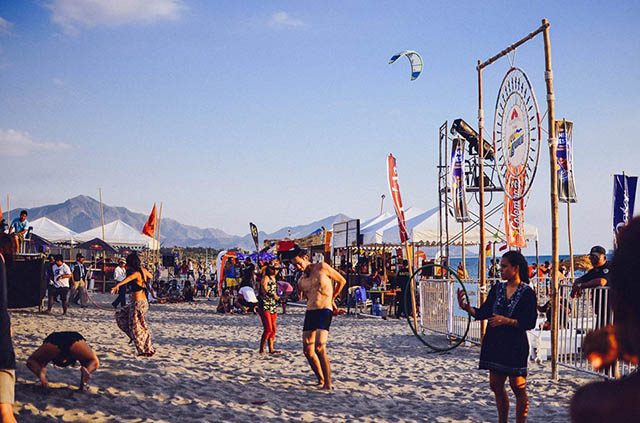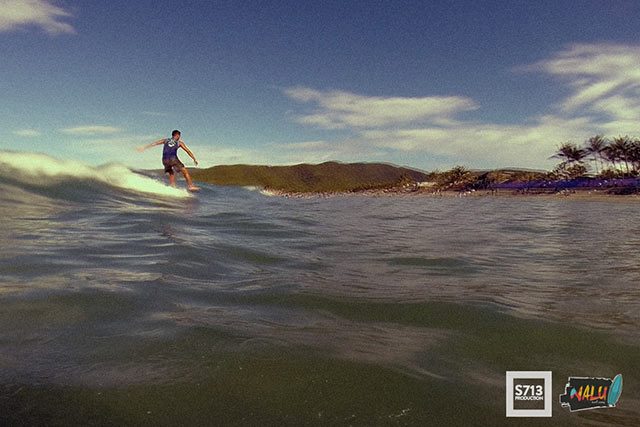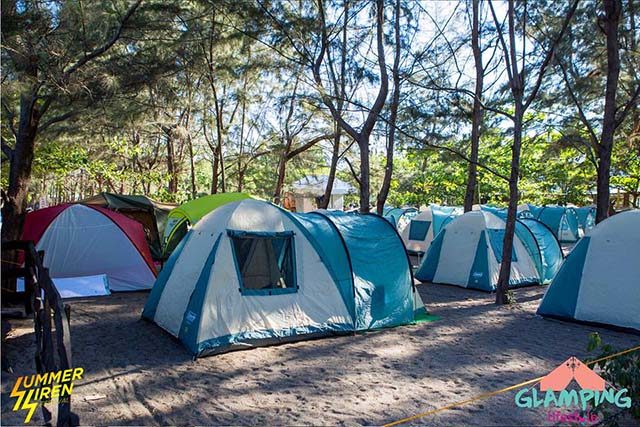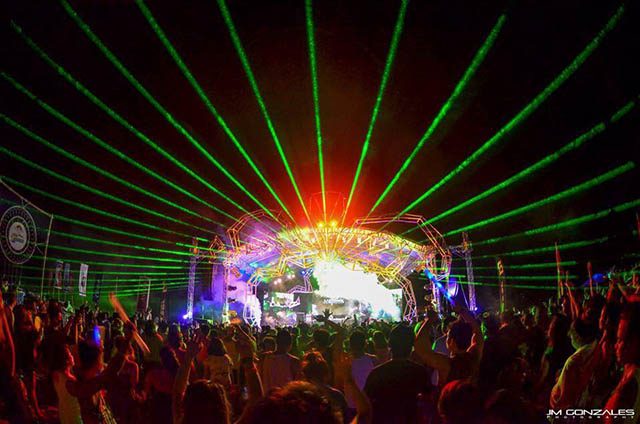SUMMARY
This is AI generated summarization, which may have errors. For context, always refer to the full article.

MANILA, Philippines – Here’s a typical scenario in the country, especially Metro Manila, during the scorching months from April to July: It’s hot and humid in your house and you want to find something to do somewhere to escape.
Adventure tour organizers have hit upon a new formula to address this by combining their usual repertoire of offering adventure packages with the quintessential summer destination – the beach. Add a live music component and you now have a destination festival, a new trend sweeping the country.
“It’s a great way to combine the allure of the beach during the summer, the sense of adventure that young people want and the ever popular live music,” said Pat Valera, co-producer of the Summer Siren Festival together with his brother, who is Managing Partner at adventure travel agency Travel Factor.
There are a few established destination music festivals right now, including Malasimbo in Puerto Galera, Soul Surf in La Union, Summer Siren in Zambales, and some in Cebu and Davao, he said.
Adding value to the mix
The Manila festival scene is congested and they couldn’t find a way to add value for their participants, so they decided to venture into holding the festivals in places people would usually visit, explained Valera.
The beach is the ideal venue because aside from its allure during the summer, it also gives organizers different ways to entice participants.
“Esentially all of the destination festivals are the same. They generally combine a concert at night with various beach activities during the day like surfing, yoga. Regardless of whatever you have there, it will be fun because you’re at the beach,” said Jackie Yap, co-founder at Fliptrip, organizers of the Nalu Music Fest, held at the Nalu surf resort in Baler, Aurora over the Labor Day weekend.
Social marketing
The beach component also has the benefit of drawing in communities, like the local surfing community – which is why many are held at surfing destination like La Union, Aurora, and Zambales.
“The networks of local Philippine surfers are very wide. Everyone knows each other. So if they go, everybody will go along with them,” Yap said.
Since the target market for these events is college students and young people between the ages of 21 and 35, this kind of word of mouth plays a key role, and social media amplifies this.
Valera confirmed that 90% of the publicity for their recently concluded Summer Siren event was done exclusively through social media, as young people trust their networks.

More sponsorship avenues
The day activities provide organizers with lots of unique ways to attract a wide variety sponsors that target niches rather than just the usual mix.
If an event features a surfing competition, then you can get specialized companies that cater to that segment, like Quiksilver, Fluid Surf, and Stoked, Yap said.
The Summer Siren festival incorporated camping for instance, with the tents provided by goods manufacturer Coleman while co-organizer Lifestyle Network sponsored dreamcatcher-making and ukele workshops.
Since the event involves traveling, another unique way of covering costs is to partner with new transportation providers.
Fliptrip intends to partner with ride-sharing platform Tripda for future events to help with the logistical burden, and also because the unique experience Tripda offers dovetails well with the vibe people have when attending a festival, Yap said.
Ideally, an organizer would want as many sponsors as possible to cover the expenses of the event, she added.

It’s the music
Both Valera and Yap agree that the concerts at night draw the most participants.
Since most festivals are held over 3 days, one strategy involves fielding artists of different genres on different nights to attract different crowds.
“Most of the older attendees who are already working are attracted to bands, while Electronic Dance Music (EDM) artists really bring in the college crowd,” Valera explained.
A common thread running through these festivals, with a few exceptions, is the focus on homegrown artists.
This is deliberate, Valera said, to provide a platform to showcase local talents and because they really connect with local audiences.
Featuring local artists also helps with costs, with the average local artist fee ranging from as low as P20,000 to P60,000 ($450-$1350) while an average international act will cost around P300,000 ($6750) and up, plus the cost of flying them and their crew in, Valera estimated.
This is significant, said Valera, since the average expenditure on music is about 40% of the overall cost of the festival – if you find the right mix.

Planning is crucial
Because of the complexity, planning ahead is crucial. Valera said they planned this year’s Summer Siren event 6 months ahead, for instance.
“Being very hands-on to find the right mix is essential. You can’t just throw money and hope it works,” Valera said.
This approach led to several high-profile festival failures last year, where attendance was either well below expectations or the cost of organizing spiraled out of control.
“If an organizer meets his overhead costs by getting the sponsors, and gets the mix right, then every ticket sold should be profit,” Valera said.
Heating up
Valera thinks that despite some failures last year, the prospects for destination festivals are brighter than ever.
“The word is out and people are really responding, as can be seen from the established festivals increasing their attendance every year,” he said.
Travel Factor, having doubled its attendance this year from its first year, is planning on taking on the Siren brand in different parts of the year.

Fliptrip is planning a couple of festivals in the next few months to establish itself: one in Zambales in June to July of this year to kickoff the surf season, as well as one in Baler at the end of the summer when the weather cools.
“It will be a light-hearted, quirky event featuring a surf competition in costumes, and it will be for charity with all the proceeds going to local communities,” Yap said.
The start-up sees these festivals as the ideal way to get its name out as it creates the vibe they want on their other trip offerings.
“Festivals are always exciting, even if it doesn’t turn a profit. It’s a lot of stress but it’s fun and that’s what travel is really,” Yap said – Rappler.com
$ 1 = P44.45
Add a comment
How does this make you feel?
There are no comments yet. Add your comment to start the conversation.